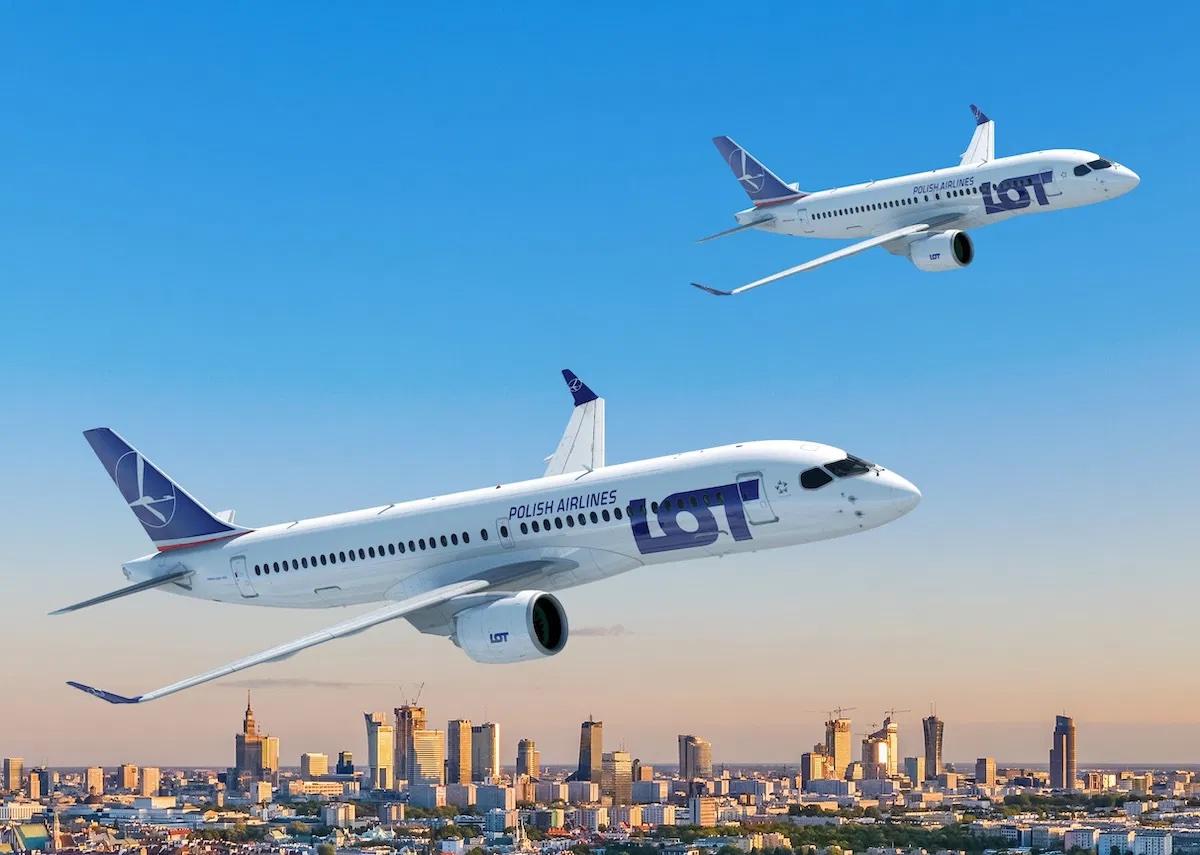
Smarter email, faster business.
Trending
LOT Polish Airlines Orders Up to 84 Airbus A220 Jets, Challenging Embraer

LOT Polish Airlines Commits to Up to 84 Airbus A220 Jets, Signaling Strategic Fleet Shift
LOT Polish Airlines, a prominent member of the Star Alliance, has announced a landmark fleet renewal plan centered on a firm order for 40 Airbus A220 aircraft. This order is evenly divided between the smaller A220-100 and the larger A220-300 variants, with deliveries scheduled to commence in 2027. Additionally, the agreement includes options for 44 more jets, potentially expanding the total order to 84 aircraft. This move represents a significant strategic pivot in LOT’s fleet composition and long-term growth ambitions.
A Departure from Tradition: Embracing Airbus
This order marks LOT’s first direct acquisition of Airbus aircraft, breaking from its historical reliance on Boeing and Embraer models. Currently, the airline operates a mixed fleet that includes Boeing 787s and 737s alongside various Embraer regional jets such as the E170, E175, E190, and E195. The decision to favor the Airbus A220 over Embraer’s E190/195-E2 for its regional fleet renewal underscores a new direction for the Polish flag carrier, reflecting both operational and strategic considerations.
LOT’s Chief Executive Officer, Michał Fijoł, emphasized the forward-looking nature of the decision, stating, “Today’s decision is about the future. The Airbus A220 family aircraft, which will start joining our fleet in 2027, open up new opportunities for development and growth—key pillars of our strategy. These modern, efficient, and passenger-focused aircraft will allow us to compete effectively in the European skies, strengthen our position as the preferred carrier in Central and Eastern Europe, and prepare LOT for its role as a leading airline at the Central Communication Port.”
Advantages and Challenges of the A220 Integration
The Airbus A220 is widely recognized for its fuel efficiency, extended range, and enhanced passenger comfort, featuring a 2-3 seating configuration that reduces the number of middle seats. With seating capacities ranging from approximately 100 to 160 passengers, the A220s will provide LOT with increased capacity relative to its current Embraer fleet, which accommodates between 76 and 118 passengers per aircraft. This capacity boost aligns with LOT’s ambitions to expand its market presence and improve operational efficiency.
However, the transition to a new aircraft type entails considerable challenges. Integrating the Airbus A220 will require comprehensive pilot and maintenance crew training, alongside significant adjustments to LOT’s operational and maintenance infrastructure. The financial commitment involved is substantial, prompting some analysts to express concerns about the potential operational disruptions and financial strain during the transition period. While many industry experts view the move as a strategic modernization effort that will enhance LOT’s competitiveness, others caution about the risks inherent in such a large-scale fleet transformation.
Market Implications and Broader Industry Impact
The order represents a major victory for Airbus, reinforcing its position in the competitive regional jet market. Conversely, Embraer faces a notable setback, likely prompting the Brazilian manufacturer to reevaluate its strategy. Industry observers anticipate that Embraer may focus on product enhancements or seek new partnerships to mitigate the impact of losing a key customer. This development is expected to intensify competition and exert pricing pressures within the regional aircraft sector as manufacturers respond to evolving market dynamics.
LOT’s decision also reflects broader geopolitical and economic trends, including a more pronounced alignment with European Union interests, given Airbus’s status as a European manufacturer. As the airline embarks on this ambitious fleet renewal, its success will largely depend on how effectively it manages the operational complexities and integration challenges that lie ahead.